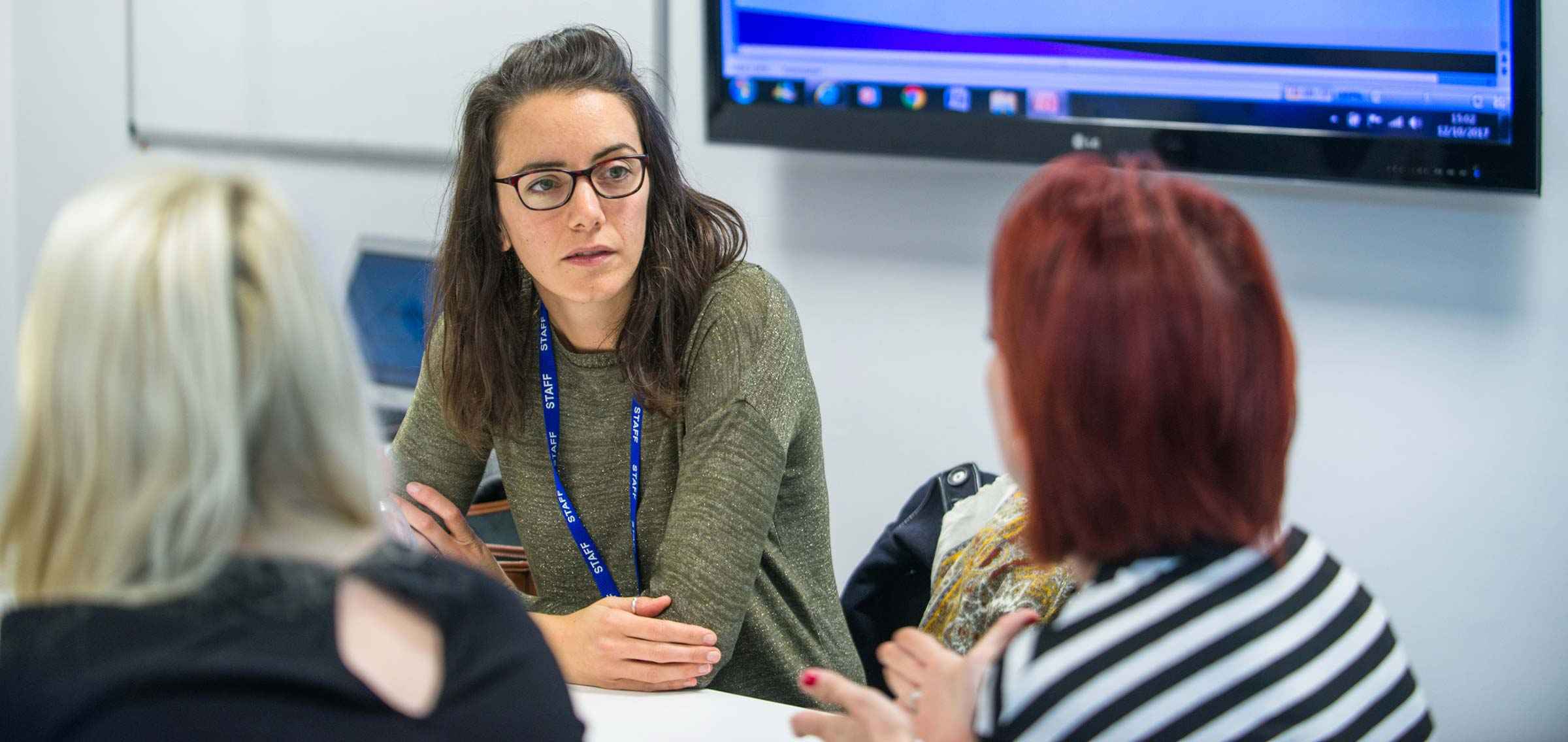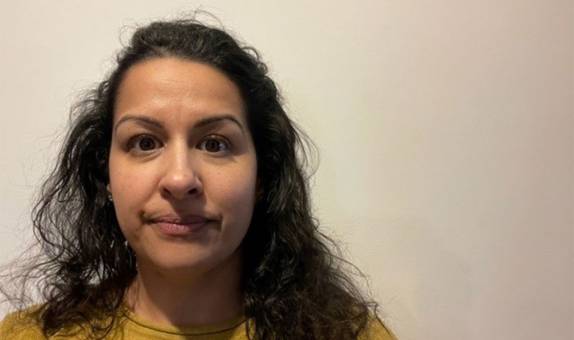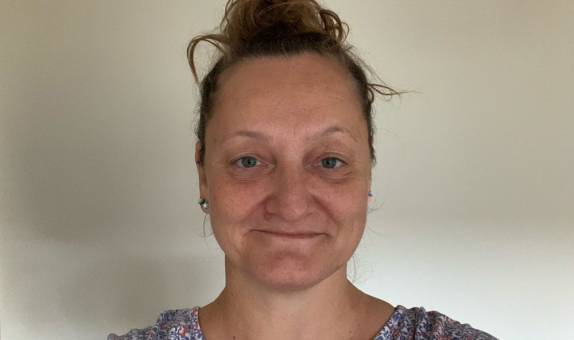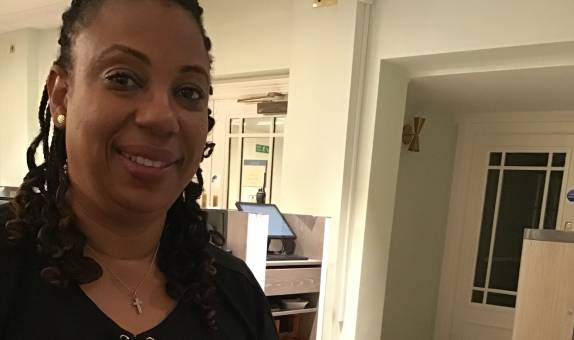Practice Education PgCert
Why choose this course?
This course, for registered social workers, will enable you to gain Stage 1 and Stage 2 of the Practice Educator Professional Standards (PEPS) currently held by the British Association of Social Workers (BASW). It is ideal if you would like to develop the next generation of social workers by teaching them during practice placements. It will enable you to progress through the Professional Capabilities Framework (PCF) levels and develop your leadership skills. The course is aligned with Chief Social Workers' Knowledge and skills statements for practice leaders and practice supervisors.
This course is a well-established programme with a strong professional reputation. It has been developed in partnership with agencies in south-west London and Surrey and users of social work services.
You can also progress to the Advanced Social Work MA, depending on your module choices.
| Mode | Duration | Attendance | Start date |
|---|---|---|---|
| Part time | 2 years | Flexible | September, January |
| Main Location | Kingston Hill |
Reasons to choose Kingston University
- This course is designed to prepare social workers to teach, support and assess social work students on practice placements.
- It is aligned with the Post-Qualifying Standards for practice leaders and practice supervisors.
- In successfully completing this course, you will demonstrate Stages 1 and 2 of the BASW Practice Educator Professional Standards.
What you will study
Stage 1 of the course prepares you to work with a social work student on their first placement. You will learn to develop a curriculum, manage the placement, support learning and assess achievement. You will put this into practice through providing a student placement (usually a 70-day placement).
In Stage 2 you will provide a placement for a second social work student (usually a 100-day Final placement). If you have significant experience in practice education, or have taken an Enabling Others' Learning (Social Work) course, you may be able to join Stage 2 directly.
From this PgCert, you may progress to the Advanced Social Work MA, depending on your module choices.
Core modules
Core modules
Practice Education Stage 1
30 credits
This module equips registered social workers to undertake the responsibilities of a Stage 1 Practice Educator (Practice Educator Professional Standards (PEPS) of the British Association of Social Workers (BASW). Students who complete this module successfully will be able to supervise, teach and assess social work degree students up to, but not including, the final assessment prior to qualification. At this stage, they may contribute to the last placement but not take full responsibility for assessment or act as the practice educator on a day-to-day basis. Students undertaking this module are required to undertake a practicum which entails acting as a Stage 1 practice educator to a degree in social work student on a first placement (70 days).
This module is only available to registered social workers with two or more years' more post-registration practice experience. It is targeted at social worker/experienced social worker level.
Practice Education Stage 2
30 credits
This module equips registered social workers to undertake the responsibilities of a Stage 2 Practice Educator (Practice Educator Professional Standards (PEPS) of the British Association of Social Workers (BASW). Students who complete this module successfully will be able to supervise, teach and assess social work degree students up to and including the last placement and to work with ASYE candidates. In effect, these practice educators will have the authority and capability to recommend, on the basis of appropriate evidence, that the social work students are fit to practise at the point of qualification. The module includes practice assessment.
This module is only available to registered social workers with three years or more post-registration practice experience and who have completed Practice Educator Stage 1 or equivalent. It is targeted at experienced social worker level.
Entry requirements
Teaching and assessment
For both modules trainees are assessed in practice by a Practice Assessor (a Stage 2 qualified Practice Educator) and are required to produce a portfolio of practice evidence including: a Practice Learning Agreement, Induction Programme, Midway and Final Report on the student, examples of a teaching activity, direct observations of the student by the trainee practice educator, direct observations of the trainee by the PA and feedback from the student, tutor and line manager.
There are slightly different requirements for the modules that will be explained to you by your course tutors and are described in some detail in the Module Handbooks. In addition both modules require trainees to produce critical analyses of their development as Practice Educators and Professional Development Plans.
Who teaches this course?
Every member of the teaching staff has substantial practice experience in social work. In addition, many are actively involved in social work research, presenting regularly at conferences and publishing in books and journals. In addition, our course teams draw on the wealth of experience provided by our professional contacts and service users and carers who feed into the design of our courses and provide teaching and supervision to enrich your learning.
We have strong links with the NHS, education and healthcare providers and social services, and we also offer classic postgraduate programmes alongside research and continuing professional development (CPD) opportunities.
Course fees and funding
Here you can find more details about fees for this course, as well as any funding opportunities available to you for this course. Please note that fees relate to the academic year in question and will increase in future years.
Additional costs
Depending on the programme of study, there may be extra costs that are not covered by tuition fees which students will need to consider when planning their studies. Tuition fees cover the cost of your teaching, assessment and operating University facilities such as the library, access to shared IT equipment and other support services. Accommodation and living costs are not included in our fees.
Where a course has additional expenses, we make every effort to highlight them. These may include optional field trips, materials (e.g. art, design, engineering), security checks such as DBS, uniforms, specialist clothing or professional memberships.
Social Work Skills Lab
The skills lab is a purpose-built facility where social work students have the opportunity to learn and to practise key social work skills.
Social workers undertaking continuing professional development courses develop their assessment and intervention skills and other skills such as mentoring, teaching and providing reflective supervision.
What's available?
The skills lab is divided into several sections including:
- a seminar/case conference room for a maximum of 20 people;
- a simulated living-room and front door to assist in developing skills relating to home visits;
- five interview rooms simulating work environments;
- a control room with two-way mirror and viewing monitors; and
- all rooms have fitted cameras and microphones so that activities can be recorded.
A flexible, creative space
The skills lab has been designed to be a multi-functional space which allows flexible use. The furniture is all portable and can be changed according to the simulated activities required.
The small rooms can be used for practising communication skills and simulating supervision sessions.
The large room can be used as a teaching or seminar room and can be set up as a simulated case conference room or duty desk.
Participants have the opportunity to engage in creative skills development activities and benefit from live supervision and feedback from the recorded material.
After you graduate
People who have taken this course have gone on to:
- Specialise in practice education, working with many students and trainee practice educators over the years.
- Teach in universities - nearly all the universities in London employ a staff member who have taken this programme.
- Work in learning and development teams in a local authority.
- Progress to management roles in their own and other organisations.
- Write or contribute to text books, for example: Farrukh Akhtar (2013) Mastering Social Work Values. London, JKP and Anne Patmore (2012) Mastering Approaches to Diversity in Social Work. Mastering Social Work Skills.
What our students say
Links with business and industry
We are involved in a unique teaching partnership with seven local authorities and two voluntary sector agencies, including Achieving for Children, Croydon Adult and Children's services, Kingston Adult services, Merton Adult and Children's services, Sutton Adult and Children's services, Richmond & Wandsworth Adult services, Wandsworth Children's services, NSPCC and Welcare, Surrey Children's services, South West London and St George's Mental Health Trust.
Practising social workers are involved in teaching, bringing theory to life with their front-line experiences.
People with lived experience and carers contribute to assessment and quality assurance on our programme.
Current research in this subject
Many of our staff are research active, often in partnership with NHS Trusts. This ensures they are in touch with the latest thinking and bring best practice to your studies.
Social work research activity focuses around several key areas:
- risk and child abuse
- children's rights
- learning processes and partnership approaches in professional education
- management of child protection systems
- safeguarding adults
- mental capacity
- effectiveness of community-based responses to crime.
We conduct much of our social care research and consultancy either in partnership with or on behalf of the social service, voluntary sector and probation agencies.
Course changes and regulations
The information on this page reflects the currently intended course structure and module details. To improve your student experience and the quality of your degree, we may review and change the material information of this course. Course changes explained.
Programme Specifications for the course are published ahead of each academic year.
Regulations governing this course can be found on our website.






